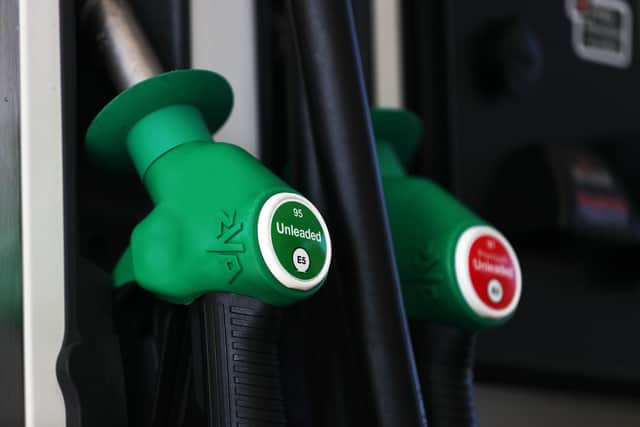Cost of living: 'Fuel duty cuts are never enough' says CPRE
and live on Freeview channel 276
Rishi Sunak unveiled a new Tax Plan to ease the rising cost of living and to deliver the biggest cut to personal taxes in a quarter of a century.
Fuel duty for petrol and diesel will be cut by 5p per litre from 6pm tonight(March 23) to help drivers across the UK with rising costs – a tax cut worth £2.4 billion. This is the biggest cut ever on all fuel duty rates and means a one-car family will now save on average £100.
Advertisement
Hide AdAdvertisement
Hide AdTom Fyans, director of campaigns and policy at CPRE said: "Motorists seemingly being the Chancellor's top priority is misguided when we're in the midst of a climate emergency. However, we welcome measures to make energy efficiency home improvements more affordable. Cutting VAT to zero on solar panels, heat pumps and insulation is a positive step as it’ll help reduce bills while also tackling the climate crisis. Unfortunately, the Chancellor has done little to help rural households facing the most difficulty. Those in the countryside with no alternative but to use heating oil to warm their homes have seen their energy bills triple because they are not protected by the energy price cap – they are the most vulnerable to energy price rises but have been ignored by the Chancellor.


"On the cut to fuel duty, it would have been better for the government to think strategically about how to help those people suffering most from the cost of living crisis in a way that enhances our ability to tackle the climate emergency. Saving the average family £3 to fill up their car, which is what a 5p cut in fuel duty amounts to, will make no real world difference. Yet you could make the world of difference for the same money by funding a bus network capable of matching Swiss standards, where every village of two to three hundred people is guaranteed at least an hourly bus service from 6am to midnight, 7 days a week. The price tag is almost identical – £2.7 billion for a world-leading bus service against £2.5 billion cutting a few pence off fuel duty – but the difference to real people’s lives would be immeasurable."